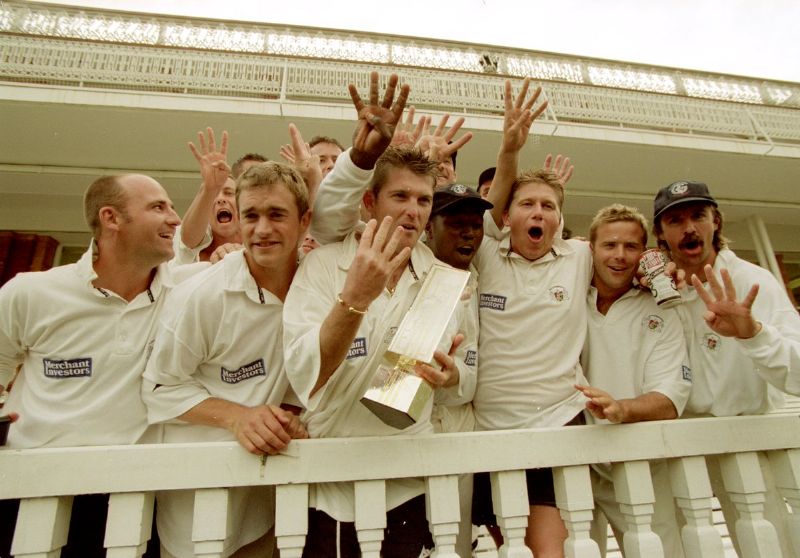- Home
- News, Articles & Reviews
- All Sport
- Cricket
- Cycling
- Football
- Golf
- Horse Racing
- Rugby Union
- Angling
- Archery
- Athletics
- Basketball
- Bowls
- Boxing
- Croquet
- Dance
- Darts
- Diving
- Duathlon
- Equestrian
- General
- Gymnastics
- Hockey
- Martial Arts
- Modern Pentathlon
- Motorsport
- Mountain Biking
- Netball
- Padel
- Parasport
- Polo
- Powerboating
- Powerlifting
- Rowing
- Rugby League
- Running
- Scuba Diving
- Shooting
- Skiing
- Skittles
- Snooker
- Squash
- Swimming
- Table Tennis
- Tennis
- Triathlon
- Tug of War
- Walking
- Walking Football
- Water Polo
- Weightlifting
- Wheelchair Tennis
-
Sport
- All Sport
- Cricket
- Cycling
- Football
- Golf
- Horse Racing
- Rugby Union
- Angling
- Archery
- Athletics
- Basketball
- Bowls
- Boxing
- Croquet
- Dance
- Darts
- Diving
- Duathlon
- Equestrian
- General
- Gymnastics
- Hockey
- Martial Arts
- Modern Pentathlon
- Motorsport
- Mountain Biking
- Netball
- Padel
- Parasport
- Polo
- Powerboating
- Powerlifting
- Rowing
- Rugby League
- Running
- Scuba Diving
- Shooting
- Skiing
- Skittles
- Snooker
- Squash
- Swimming
- Table Tennis
- Tennis
- Triathlon
- Tug of War
- Walking
- Walking Football
- Water Polo
- Weightlifting
- Wheelchair Tennis
We are hiring! Please click here to join our growing magazine delivery team in Gloucestershire!
Areas
Sport
Tags
Archive

Back in the Day: Martyn Ball, Gloucestershire cricketer
Author: Roger Jackson, Posted: Friday, 23rd June 2017, 09:20, Tags: Back In The Day
Gloucestershire have had some great players over the past 50 years or so.
Mike Procter was a great all-rounder, Courtney Walsh was a great fast bowler, Zaheer Abbas was a great batsman, Jack Russell was a great wicketkeeper... and Martyn Ball was a great slip fielder.
The first four are, of course, household names across the cricketing world but no less a judge than Russell told anyone who would listen while he was England duty in the 1990s that Ball, now 47, was the best slipper in the country.
It was a mantle that Ball, primarily an off-spinner, was happy to carry and he earned rave reviews from team-mates, opposition players and supporters alike.
Ball’s route into cricket was not a straightforward one. Growing up just outside Bristol in Yate and Chipping Sodbury, Ball was a typical sports-mad youngster, playing football and rugby in the winter and then “playing cricket in the summer when the sun came out”.
“I played age group rugby at Bristol as a scrum-half,” said Ball, “and I was a half tidy footballer. I played a bit of representative football alongside David Lee, who went on to play for Chelsea. We’re still close mates.
“When I got to 16-17 I realised I wasn’t tough enough to push on in rugby and it was pretty much the same in football, I realised I wasn’t quite good enough.”
At this stage, the young Ball had been playing representative cricket for the Gloucestershire Cricket Association for a couple of years but was by no means a regular in the side.
Then at the age of 16 or 17 things started to click.
“It wasn’t a case of me choosing cricket, it chose me,” he said.
An invitation to train with the South West squad at Millfield School in the winter of 1987/88 confirmed that Ball was on a good wicket and he began the summer of 1988 hoping to get into the Gloucestershire under-19 team.
What unfolded over the next few months was beyond his wildest dreams.
“Graham Wiltshire asked me if I could play for Gloucestershire 2nds,” Ball recalls. “They’d always be short of players at the start of the summer because they’d be away at university so they needed extra people to make up the numbers.
“I remember my first game, I batted 11 and didn’t get a bowl. The next game I batted 11 again but I got a few overs and got a couple of wickets.
“When the other lads came back from university I kept my place so I knew I must have been doing something right.”
He certainly was, so much so that in August he was called up to make his first class debut against the touring Sri Lankans. A further game against Hampshire followed and by the end of the season he was being offered a two-year contract.
“I was on a pittance,” laughed Ball, “but I was a young lad who from the age of 11 had always wanted to play sport.”
The upward curve in his career was to continue in 1989. A few games for the 2nd XI were enough to convince captain Bill Athey that he should be mixing it with the big boys in the first class game.
While it was former Yorkshire and England batsman Athey who gave him his big chance that season Ball has special words for the county’s former skipper and fellow spinner David Graveney.
“Grav was really supportive,” said Ball. “He’d been injured and I’d played seven or eight games on the trot. I’d done pretty well but when Grav was fit again the team was read out and my name wasn’t on it and his was.
“I remember Grav saying, ‘Hang on Bill, if you’re only going to play one spinner that should be Ballie’.”
Ball did play and Graveney didn’t and there were to be more good times for Ball before the end of the season.
“I got selected to play for England under-19s,” he said. “It was a helluva team. Some of the players like Mark Ramprakash had been destined to play for England from the age of eight but it was all very new to me. Some of the lads I went to school with at 14 or 15 didn’t even know I could play cricket!”
Some of the players who Ball shared a dressing room with that summer read like a who’s who of English cricket in the 1990s and early noughties - Nick Knight, John Crawley, Ramprakash, Chris Adams, Tony Penberthy, Paul Grayson, Keith Piper, Darren Gough, Dominic Cork and Mark Ilott.
Ian Salisbury would replace Ilott if they decided to play two spinners and the only player from that list not to go on and play in the senior England set-up was Penberthy.
“We were playing New Zealand,” said Ball, “and they had some players who went on to enjoy good careers - the likes of Adam Parore, Chris Cairns, Blair Pocock and Chris Harris.”
Ball said, “it was an honour to play for England” but after finishing as England’s leading wicket-taker in the series the wheels came off in 1990 when he experienced the first downturn of his career.
“I think being a young spinner is the hardest job in the game,” he said. “There are a lot of ups and downs and spinners do take time to mature whereas seamers tend to peak at an earlier age.
“Eddie Barlow had come in as coach and quite a few of the senior players had left.
“All of a sudden, I felt under a bit of pressure to perform because I’d been in the team even though I was only 20.
“I didn’t play so well and in the end, I got dropped.”
That was to be the start of an uncertain period for Ball. Things got little better over the next couple of years and by 1993 the smart money was on him not being offered a contract for 1994.
“I thought that was my lot,” he admitted. “I got dropped after the first game of the 93 season when Tony Wright was the captain and I was playing for the 2nd XI.
“I’d gone from being the top wicket-taker for the England under-19s to not being able to get into the Gloucestershire side. I was bowling like a drain and in those days, we didn’t have a great team so if Gloucestershire didn’t want me it was unlikely that anyone else would.
“What made it even tougher was that I was now watching some of those guys I’d played cricket with for England make their Test debuts.”
As is so often the case in the sport, one man’s misfortune is another person’s opportunity. Wright resigned the captaincy mid-season in 1993 and was replaced by Courtney Walsh – “Walsh is a legend to everybody at Gloucestershire,” said Ball.
He also took a special interest in Ball, who recalls: “He took me to one side and said, ‘Hang in there. Put in some good performances and you’ll get back in the reckoning’. He made me feel like a million dollars.”
The West Indies legend was true to his word and Ball was back in the 1st XI for the county championship game against Glamorgan at Abergavenny where he picked up a couple of wickets.
Next up was the game against Somerset at Taunton and it was the match that was the turning point of Ball’s career.
“Somerset had Mushtaq Ahmed in their side so it was always going to be a spinner’s wicket,” recalled Ball, who outbowled the Pakistan Test star to such an extent that he claimed 14 wickets in the match, including career-best figures of 8-46 in the second innings, as Gloucestershire pulled off an unlikely victory.
“I was walking on air. I’d been out of the team all year and suddenly I’m back in favour and producing the best figures in the championship that season.
“I’d gone from nowhere - I’d been plummeting from 91 to 93 - to being on top of the world.”
Not surprisingly Ball was offered a new contract at the end of the season and was “always okay after that”.
“The only time I came close to leaving was when other teams were chasing me which was a much nicer feeling,” he chuckled.
Ball was by now an established figure in the Gloucestershire set-up at a time when county cricket was strong.
“Every county seemed to have one or two of those great West Indians in their team,” he said. “We had Courtney Walsh, of course, but all the islands had a barrage of fast bowlers.
“I remember we had Vibert Greene. He was the one who broke Mike Gatting’s thumb on England’s tour to the West Indies in his first game back after his face had been smashed up.”
Walsh, meanwhile, in partnership with David Lawrence and supported by Kevin Curran, had been terrifying county batsmen up and down the country for a number of years, particularly at Cheltenham.
Ball has great memories of playing at the Cheltenham Cricket Festival and said: “In those days the wicket was lightning fast and when those quick boys were bowling we’d be standing 10 yards further back than normal.”
So, what was it like fielding at slip to Walsh and Lawrence at Cheltenham?
“It sounds ludicrous but it was actually one of the easiest places to field slip,” Ball said. “The ball was flying through but because you were so far back you had plenty of time to see it. It was also coming through at a nice waist height.
“It was much more difficult on the slow wickets at Bristol. There you’d go much closer to the wicket because you wanted the ball to carry and the ball was often coming through to you down by your ankles.”
Ball, of course, made slip fielding look easy on any wicket.
“I did have an eye for it,” he said. “I always enjoyed fielding. I worked out as a kid that if you were going to play cricket you were going to spend half your time fielding so I wasn’t one of those people who’d moan about it, I made sure I enjoyed it. I used to like diving around.”
In the mid-1990s there was a definite pecking order in the county game and in those days Gloucestershire’s established slippers were Wright, Athey and Jeremy Lloyds.
But when they sat out a tour game against the Sri Lankans, Ball took his chance, literally, to show his prowess behind the wicket as he snapped up all five chances offered to him.
In one game Ball had established himself as first choice first slip and when Lloyds returned for the next game he was stationed in the gully.
“I moved around between first and second slip when Craig Spearman came over,” said Ball. “He didn’t like it at second slip but John Bracewell used to say to me, ‘You’re the best, just go where the ball goes’.”
That was high praise indeed from Gloucestershire’s coach but Jack Russell’s words meant even more to Ball.
“He’d tell everyone that I was the best,” he said. “It was really nice of him to say that. I know I wasn’t the best off-spinner in the world and although I could slog a few runs down the order I wasn’t an all-rounder but at slip I knew I was right up there.
“Walsh, Mike Smith, Jon Lewis... they always wanted me in the side. If I caught 32 and dropped one in a season rather than say caught 28 and dropped six, that could make quite a difference to the number of games we won.”
By the late 1990s Gloucestershire were developing into a very good one-day side under the astute partnership of coach Bracewell and captain Mark Alleyne.
“You’ve got to give huge credit to John Bracewell,” said Ball. “He saw something in us, got us believing in a team ethic and other things just clicked.
“He was a very good man manager. I remember him pulling me to one side when we were playing at the Gloucester Festival.
“I was Mark’s vice-captain and he asked me how I thought things were going.
“I said I thought we were having a decent championship season but we were mediocre in one-day cricket.
“He then told me, ‘I think you can play for England’.
“Really, at 28”, I said.
“Ballie”, he said, ‘I think you can play for England but I think you should play for someone else because you are not going to get enough wickets on the slow, low pitches at Bristol and Gloucester’.
“And then he added, ‘Or if you really want to play for England you can buy into what we want to do. You’re a ringleader in the dressing room and your good side is a good influence but your your bad side is not so good’.”
Bracewell’s wise words struck a chord with Ball, so much so that he went on to enjoy unbelievable success with the team in the shorter form of the game in the late 1990s and early noughties.
While Alleyne and Bracewell were pivotal to the success, Russell’s role was equally important.
“At this stage, Jack wasn’t getting many games with England and that probably gave him the extra motivation to perform even better for Gloucestershire,” said Ball.
“Everyone knew their jobs and Mark captained the side fantastically. We were a team in the true sense of the word.
“And the great thing was that we never got bored of winning. Players like myself, Mark and Jack had never got past the quarter-finals of these competitions but here we were going to Lord’s year after year.
“I remember our first final against Yorkshire. We were just so unbelievably relaxed. I wouldn’t say we didn’t want to win but we just wanted to make sure we enjoyed the game. It was all masterminded by Bracewell.
“I remember we were stood in the hotel in jeans and T-shirts the night before the game. We were about to go out for something to eat when the Yorkshire boys all came in - Hoggard, Gough, Vaughan - dressed in shirts and ties with five million committee members behind them.
“There was so much pressure on them. We hadn’t won a trophy for 20 years but nor had they and it seemed all the pressure was on them.
“Everyone remembers Mark’s century that day but Rob Cunliffe made a brilliant 60 which set us up and in the end, we smashed them.
“The next final was against Somerset and by then we felt confident we could win in any situation. It wasn’t arrogance. We were just relaxed and believed in each other.”
More cup finals and many more trophies followed and the success inevitably attracted the attention of the England selectors.
Smith had already played one Test for England in 1997 and there were to be one-day international call-ups for Alleyne, Lewis, who also won a handful of Test caps, and Jeremy Snape.
Ball, too, was given an England call-up although not in ideal circumstances. He had already acted as 12th man for England against Steve Waugh’s all-conquering Australians at The Oval in 2001.
“I went on for a few overs and they immediately put me at slip,” Ball said. “They were 340-odd for four and I don’t think I touched the ball!”
A few months later he was in the England tour party heading for India after Robert Croft had decided against travelling following 9/11.
Ball played third fiddle behind current Gloucestershire coach Richard Dawson and left-armer Ashley Giles but did have the distinction of going on as 12th man at Ahmedabad and taking a sharp slip catch off the bowling of Freddie Flintoff to dismiss Sourav Ganguly.
Closer to home Ball became chairman of the Professional Cricketers’ Association and it was his work with them that helped bring the curtain down on his cricket career ahead of the 2007 season.
“I’d signed another contract with Gloucestershire,” said Ball, “but then I got offered the chance to work for an American property developer.
“I loved playing professional cricket but this was too good an opportunity to turn down. Tom Richardson was in charge at Gloucestershire at the time and he wasn’t over the moon about it but I’d given 19 years’ service to the club so I’d done my bit.”
It’s a decision that Ball has never regretted. He is still involved in property development these days and now lives in the beautiful coastal town of Dartmouth in Devon.
It’s a fair trek up to Cheltenham from there but he said he hoped to make it to this year’s festival. If he does he’ll be welcomed by everyone at the club and their supporters. After all, he’s probably the best slip fielder the club have ever had... and he was a pretty decent cricketer as well.Other Images
Copyright © 2024 The Local Answer Limited.
Unauthorized use and/or duplication of this material without express and written permission from this site's author and/or owner is strictly prohibited. Excerpts and links may be used, provided that full and clear credit is given to The Local Answer Limited and thelocalanswer.co.uk with appropriate and specific direction to the original content.More articles you may be interested in...


© 2024 The Local Answer Limited - Registered in England and Wales - Company No. 06929408
Unit H, Churchill Industrial Estate, Churchill Road, Leckhampton, Cheltenham, GL53 7EG - VAT Registration No. 975613000You are leaving the TLA website...
You are now leaving the TLA website and are going to a website that is not operated by us. The Local Answer are not responsible for the content or availability of linked sites, and cannot accept liability if the linked site has been compromised and contains unsuitable images or other content. If you wish to proceed, please click the "Continue" button below:




